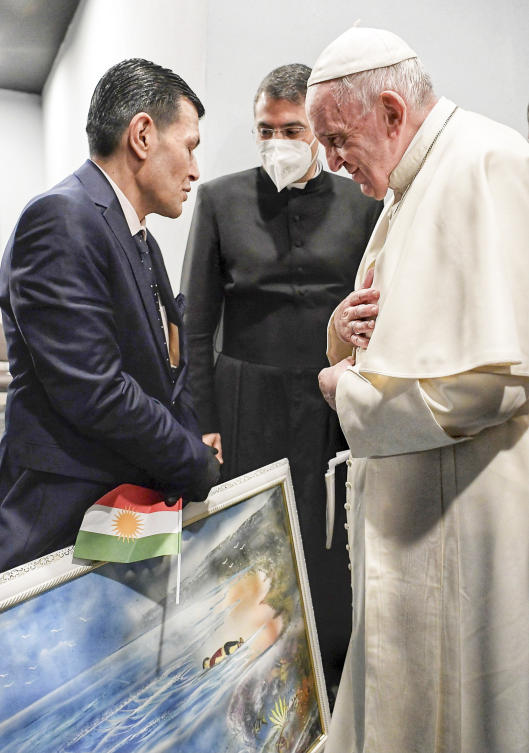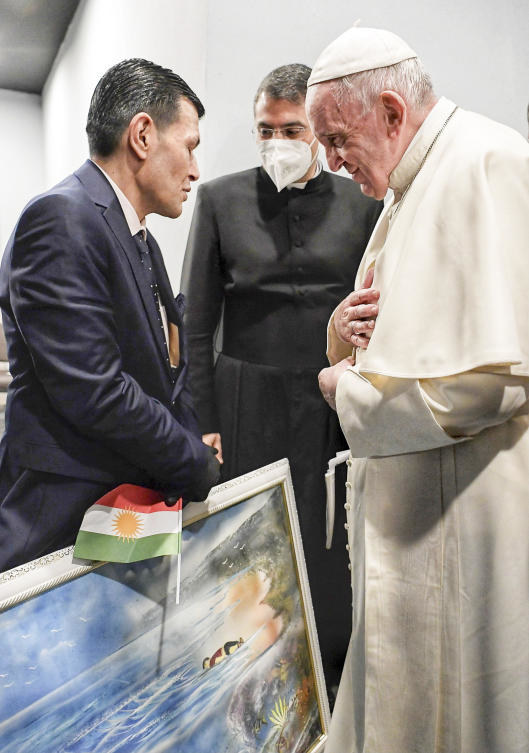DUBAI, United Arab Emirates: When Ellie, a British-Iranian living in the United Kingdom, tried to call her mother in Tehran, a robotic female voice answered instead.
“Alo? Alo?” the voice said, then asked in English: “Who is calling?” A few seconds passed.
“I can’t heard you,” the voice continued, its English imperfect. “Who you want to speak with? I’m Alyssia. Do you remember me? I think I don’t know who are you.”
Ellie, 44, is one of nine Iranians living abroad — including in the U.K and US — who said they have gotten strange, robotic voices when they attempted to call their loved ones in Iran since Israel launched airstrikes on the country a week ago.
They told their stories to The Associated Press on the condition they remain anonymous or that only their first names or initials be used out of fear of endangering their families.
Five experts with whom the AP shared recordings said it could be low-tech artificial intelligence, a chatbot or a pre-recorded message to which calls from abroad were diverted.
It remains unclear who is behind the operation, though four of the experts believed it was likely to be the Iranian government while the fifth saw Israel as more likely.
The messages are deeply eerie and disconcerting for Iranians in the diaspora struggling to contact their families as Israel’s offensive targeting Iranian nuclear and military sites pounds Tehran and other cities. Iran has retaliated with hundreds of missiles and drones, and the government has imposed a widespread Internet blackout it says is to protect the country.
That has blocked average Iranians from getting information from the outside world, and their relatives from being able to reach them.
“I don’t know why they’re doing this,” said Ellie, whose mother is diabetic, low on insulin and trapped on the outskirts of Tehran. She wants her mother to evacuate the city but cannot communicate that to her.
A request for comment sent to the Iranian mission to the UN was not immediately answered.
Some of the messages are bizarre
Most of the voices speak in English, though at least one spoke Farsi. If the caller tries to talk to it, the voice just continues with its message.
A 30-year-old women living in New York, who heard the same message Ellie did, called it “psychological warfare.”
“Calling your mom and expecting to hear her voice and hearing an AI voice is one of the most scary things I’ve ever experienced,” she said. “I can feel it in my body.”
And the messages can be bizarre. One woman living in the UK desperately called her mom and instead got a voice offering platitudes.
“Thank you for taking the time to listen,” it said, in a recording that she shared with the AP. “Today, I’d like to share some thoughts with you and share a few things that might resonate in our daily lives. Life is full of unexpected surprises, and these surprises can sometimes bring joy while at other times they challenge us.”
Not all Iranians abroad encounter the robotic voice. Some said when they try to call family, the phone just rings and rings.
It’s not clear who is behind this — or what the goal is
Colin Crowell, a former vice president for Twitter’s global policy, said it appeared that Iranian phone companies were diverting the calls to a default message system that does not allow calls to be completed.
Amir Rashidi, an Iranian cybersecurity expert based in the US, agreed and said the recordings appeared to be a government measure to thwart hackers, though there was no hard evidence.
He said that in the first two days of Israel’s campaign, mass voice and text messages were sent to Iranian phones urging the public to gear up for “emergency conditions.” They aimed to spread panic — similar to mass calls that government opponents made into Iran during the war with Iraq in the 1980s.
The voice messages trying to calm people “fit the pattern of the Iranian government and how in the past it handled emergency situations,” said Rashidi, the director of Texas-based Miaan, a group that reports on digital rights in the Middle East.
Mobile phones and landlines ultimately are overseen by Iran’s Ministry of Information and Communications Technology. But the country’s intelligence services have long been believed to be monitoring conversations.
“It would be hard for anybody else to hack. Of course, it is possible it is Israeli. But I don’t think they have an incentive to do this,” said Mehdi Yahyanejad, a tech entrepreneur and Internet freedom activist.
Marwa Fatafta, Berlin-based policy and advocacy director for digital rights group Access Now, suggested it could be “a form of psychological warfare by the Israelis.” She said it fits a past pattern by Israel of using extensive direct messaging to Lebanese and Palestinians during campaigns in Gaza and against Hezbollah.
The messages, she said, appear aimed at “tormenting” already anxious Iranians abroad.
When contacted with requests for comment, the Israeli military declined and the prime minister’s office did not respond.
Trying new ways to contact relatives
Ellie is one of a lucky few who found a way to reach relatives since the blackout. She knows someone who lives on the Iran-Turkiye border and has two phones — one with a Turkish SIM card and one with an Iranian SIM.
He calls Ellie’s mother with the Iranian phone — since people inside the country are still able to call one another — and presses it to the Turkish phone, where Ellie’s on the line. The two are able to speak.
“The last time we spoke to her, we told her about the AI voice that is answering all her calls,” said Ellie. “She was shocked. She said her phone hasn’t rung at all.”
Elon Musk said he has activated his satellite Internet provider Starlink in Iran, where a small number of people are believed to have the system, even though it is illegal. Authorities are urging the public to turn in neighbors with the devices as part of an ongoing spy hunt. Others have illegal satellite dishes, granting them access to international news.
The messages are making relatives feel helpless
M., a woman in the UK, has been trying to reach her mother-in-law, who is immobile and lives in Tehran’s northeast, which has been pummeled by Israeli bombardment throughout the week.
When she last spoke to her family in Iran, they were mulling whether she should evacuate from the city. Then the blackout was imposed, and they lost contact. Since then she has heard through a relative that the woman was in the ICU with respiratory problems.
When she calls, she gets the same bizarre message as the woman in the UK, a lengthy mantra.
“Close your eyes and picture yourself in a place that brings you peace and happiness,” it says. “Maybe you are walking through a serene forest, listening to the rustle of leaves and birds chirping. Or you’re by the seashore, hearing the calming sound of waves crashing on the sand.”
The only feeling the message does instill in her, she said, is “helplessness.”






























